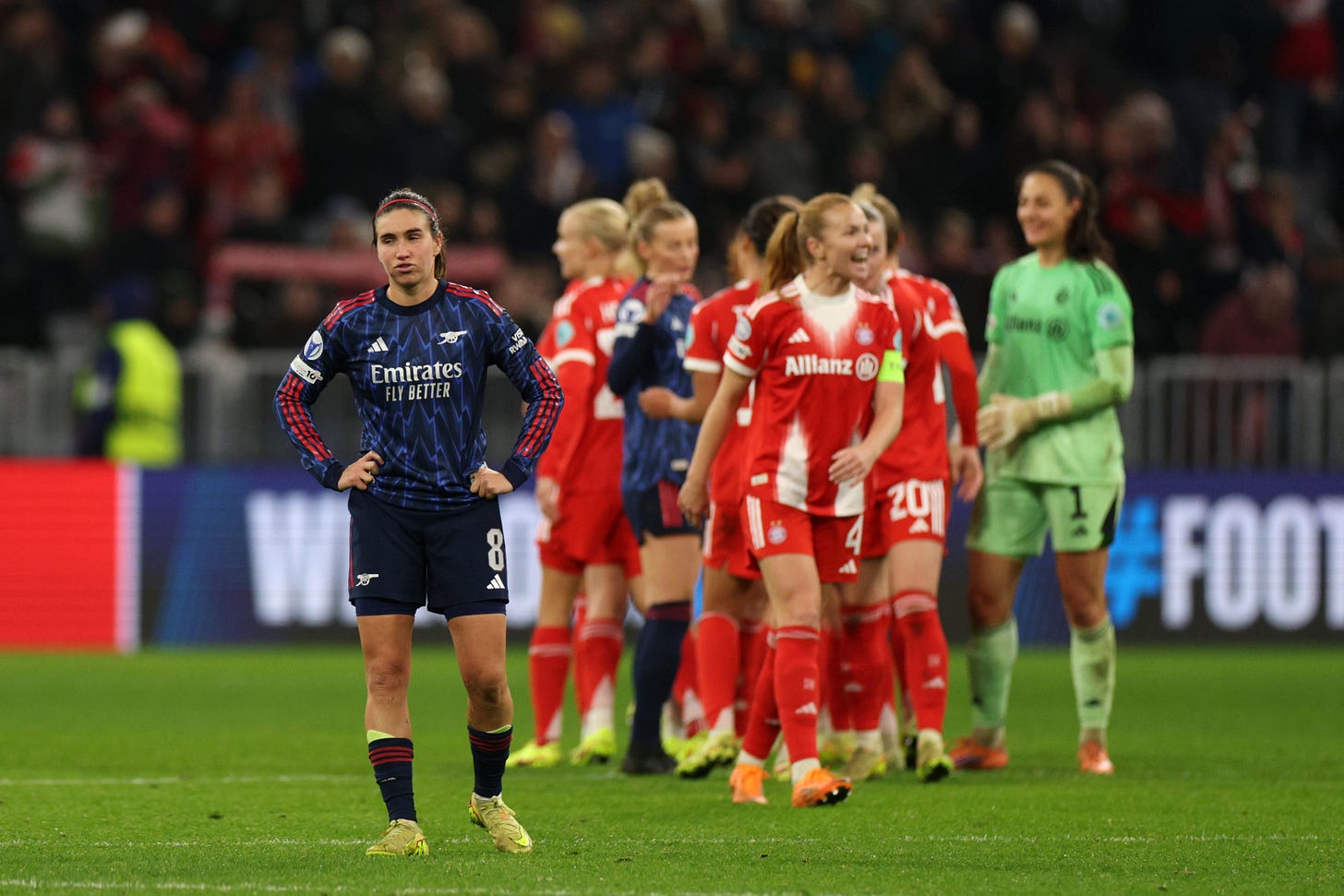Déjà vu in Munich as Arsenal collapse again
The Gunners’ 2–0 lead evaporated in a defeat that echoed last year’s meeting almost beat for beat.
Arsenal’s chances of qualifying automatically for the Uefa Women’s Champions League quarter-finals took a huge blow after a second-half collapse saw them fall to defeat in Munich. To save readers a lot of time, I could simply point you to the piece I wrote the last time the Gunners played away to Bayern in the Women’s Champions League, in the equivalent stage of the competition a little over a year ago, as the common themes from that game and the one Arsenal were involved in last night are worryingly similar.
Coming away empty-handed from a match they had led thanks to a second-half capitulation? Tick. Displaying a complete lack of organisation out of possession? Tick. A sense that, once the momentum of the match turned, there was only going to be one outcome? Tick. Even three of the goalscorers on the night(s) – Mariona Caldentey for Arsenal, and Pernille Harder and Glódís Viggósdóttir for Bayern – remained the same.
Unsurprisingly, this is a performance and result that has reopened old scars. Last season, back-to-back defeats to Bayern and Chelsea marked the end of the road for former manager Jonas Eidevall, or rather, they marked the point at which he handed in his resignation, such was the degree to which the club were dragging their feet. It is fair to say that Renée Slegers’s job isn’t under any immediate threat. While we can certainly pick the bones out of some of her decisions this season – how she has used her squad, or the tactical issues that have led to Arsenal’s backline being over-exposed – it feels almost silly, in the wake of another chastening night for the club, to microanalyse certain aspects of a coach’s management when the result on the night is symptomatic of a bigger picture: one of a club that has been allowed to drift for a number of seasons.
Of course, we have to acknowledge that the irony of all ironies here is that after that previous defeat in Munich, Arsenal went on to complete the unlikeliest of triumphs by winning the Champions League itself. This wasn’t a fluke; Arsenal deservedly won the competition because they raised their game when it mattered most. This, though, only serves to highlight the true problem. Arsenal have it in them to raise their levels in the big moments. Prior to Slegers’s appointment, we saw this under Eidevall, when the Gunners generally performed in big games, as shown in consecutive League Cup final victories over Chelsea.





